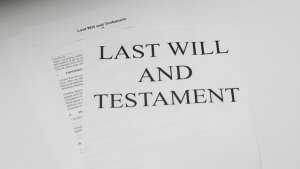Residential Nil Rate Band and its implications on the Inheritance Tax Threshold
Jan AtkinsonTable of Contents
The current Inheritance tax (IHT) threshold, known as the nil-rate band (NRB), has been frozen at its current rate of £325,000 until 2021.
The Summer Budget 2015 saw the introduction of the Residential Nil Rate Band (RNRB) and if someone dies on or after 6th April 2017, the estate may be entitled to an additional IHT threshold. For deaths incurring in the tax year 2017-18, the additional amount is up to £100,000 rising in annual increments of £25,000 to £175,000 by 2020-21 and then increasing annually by the Consumer Price Index.
The RNRB can be added to the NRB if the person and their estate meet the qualifying conditions. These are:
- The estate must include a ‘qualifying’ residential property. This means that the deceased must have lived in the property at some point during ownership so a buy-to-let property would not qualify. There can be more than one residence but only one will qualify for the RNRB and likewise, there may be no residence at the date of death if the property has been sold. In these circumstances, the downsizing provisions may apply so that the sale proceeds of the last residence may qualify.
- The property must pass to a direct lineal descendant. This means a child, grandchild or remoter issue but also includes step, adopted or fostered children. This does not include nieces, nephews or siblings .The property doesn’t have to be specifically bequeathed in a Will as it can be inherited as part of the residuary estate.
As with the NRB, to the extent that the RNRB is unused, it can be transferred (carried forward) to a surviving spouse/civil partner (even if they died before 6th April 2017).
There are some circumstances when the RNRB may not apply so if relevant you should contact us for further advice. These are:
- The overall value of the estate cannot exceed £2 million. The RNRB will be reduced by £1 for every £2 that the net estate exceeds this amount. This means that in the current tax year, there will be no RNRB available if you have assets of more than £2,200,000 (rising to £2,350,000 in 2021-22);
- If your property is to pass into a trust or is already held in a trust, it may not qualify for the RNRB, even if all the beneficiaries are lineal descendants. The availability of the RNRB will depend on the type of trust;
- If your Will is drafted with a condition that the grand/children have to reach a certain age before they can inherit (i.e. upon them attaining the age of 21), this may also mean that the property (or part of the property) is held in a trust if you die before that age contingency is met. In these circumstances, you should contact us to discuss amending your Will to ensure that your estate qualifies for the RNRB.
Related Services:
Share this article
Contact
Contact us today
For a free initial conversation call 020 7485 8811
Email us Send us an email and we’ll get back to you
More from JanVIEW ALL
- 1.3.2023
How to prevent someone contesting a will
It is fairly rare in my experience for a parent to write a child out of their will but that...
Read more - 8.2.2023
Gifting Property to Children
Can I gift property to my children? Gifting a property to your adult children is a relatively complex transaction but...
Read more - 15.11.2022
Contentious Probate Case Studies
Contentious probate involving business assets Osbornes Law acts for the defendants to a claim issued to pronounce in favour of...
Read more - 27.10.2022
Contesting A Will Case Studies
Will dispute on grounds of lack of capacity Our contesting a will solicitors acted for the claimants, the adult daughters...
Read more - 1.1.2022
Married with children from a previous relationship – how...
There are several ways of doing this. If there are sufficient assets apart from the family home, it may be...
Read more - 17.9.2021
Funding of Probate disputes
Contentious Probate can be very expensive and clients often find it difficult to find the money to cover their legal...
Read more - 13.9.2021
Worldwide Probate Dispute
The deceased died in Ireland leaving very considerable wealth and assets all over the world, including England, but without leaving...
Read more - 13.9.2021
US/UK cross border probate
Our probate lawyers in London were instructed by a US-based widow of her late husband’s £8 million English estate. As...
Read more - 7.9.2021
Dealing with Debts as an Executor
Do your debts die with you? It is a common misconception that a person’s debts die with them. After...
Read more - 13.8.2021
What is reasonable financial provision in 1975 Act claims?
The long-running and high-profile case of Ilott v Mitson [2017] UKSC 17 has finally come to an end with the decision of...
Read more - 25.9.2020
Making a Will by video link
The Government has recently announced plans to allow for the witnessing of Wills and Codicils by video conferencing. This is...
Read more - 2.9.2020
What Can I Do if I Have Been...
I was left out of my mother’s last will. What can I do? Whilst testators in England and Wales...
Read more - 10.6.2020
Leaving money to charity in your will
Why leave money to charity in your Will? Leaving money to charity in your will is a significant source of...
Read more - 22.10.2019
Property abroad? Beware of forced heirship rules
Whether it’s a holiday home, an investment property or a place you want to retire to, if you own...
Read more - 19.7.2019
Guardianship (Missing Persons) Act 2017
The Guardianship (Missing Persons) Act 2017 comes into force on 31 July 2019. This is a full 27 Months after the bill was given...
Read more - 3.7.2019
Assets abroad? Why you may need more than...
As more of us become internationally mobile, it’s increasingly common to own assets abroad. Yet lawyers say many people...
Read more - 25.3.2019
Intestacy Rules
What Happens When Someone Dies Without a Will? It is estimated that between half and two-thirds of the adult population...
Read more - 25.3.2019
Treasury collecting millions in unclaimed assets
Finding beneficiaries for unclaimed assets The amount of unclaimed assets has nearly doubled in the last year, with the Prince...
Read more - 25.3.2019
Cross Border Issues – Wills and Succession
An increasing number of individuals have connections with more than one jurisdiction. Conflicting rules can significantly affect their estate planning...
Read more













